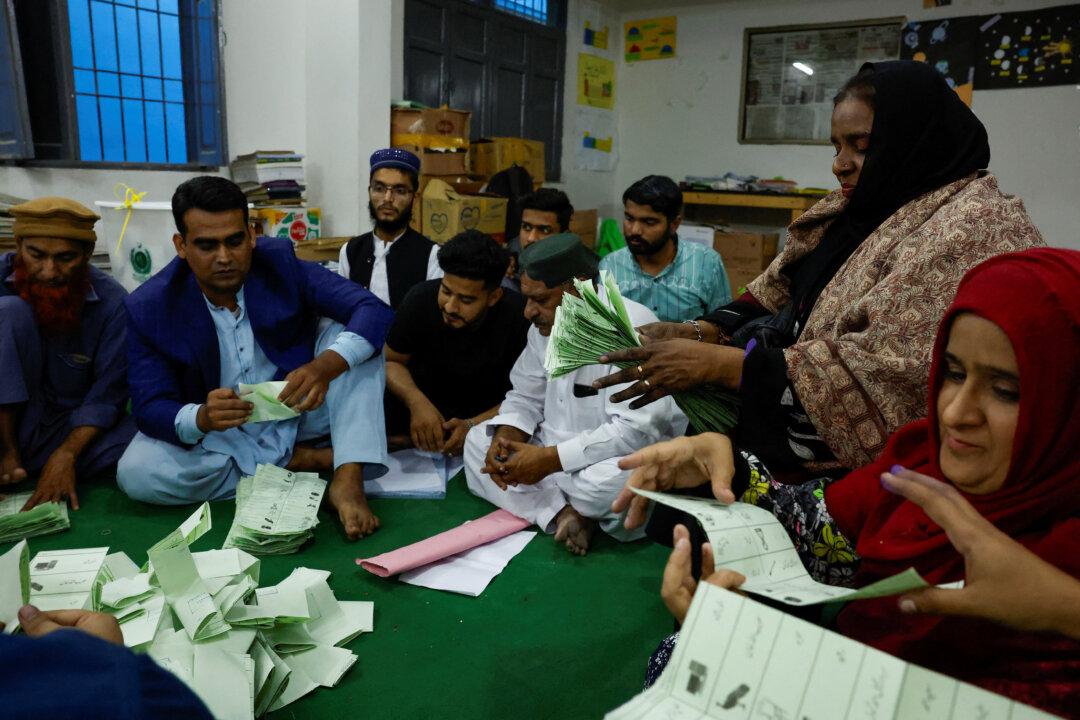ISLAMABAD—Pakistan began counting votes after polling ended on Feb. 8 in a general election marred by extremist attacks and suspension of mobile phone service, with authorities saying that at least nine people had been killed nationwide.
The election was held as the South Asian country struggles to recover from an economic crisis while it grapples with rising extremist violence in a deeply polarized political environment.





